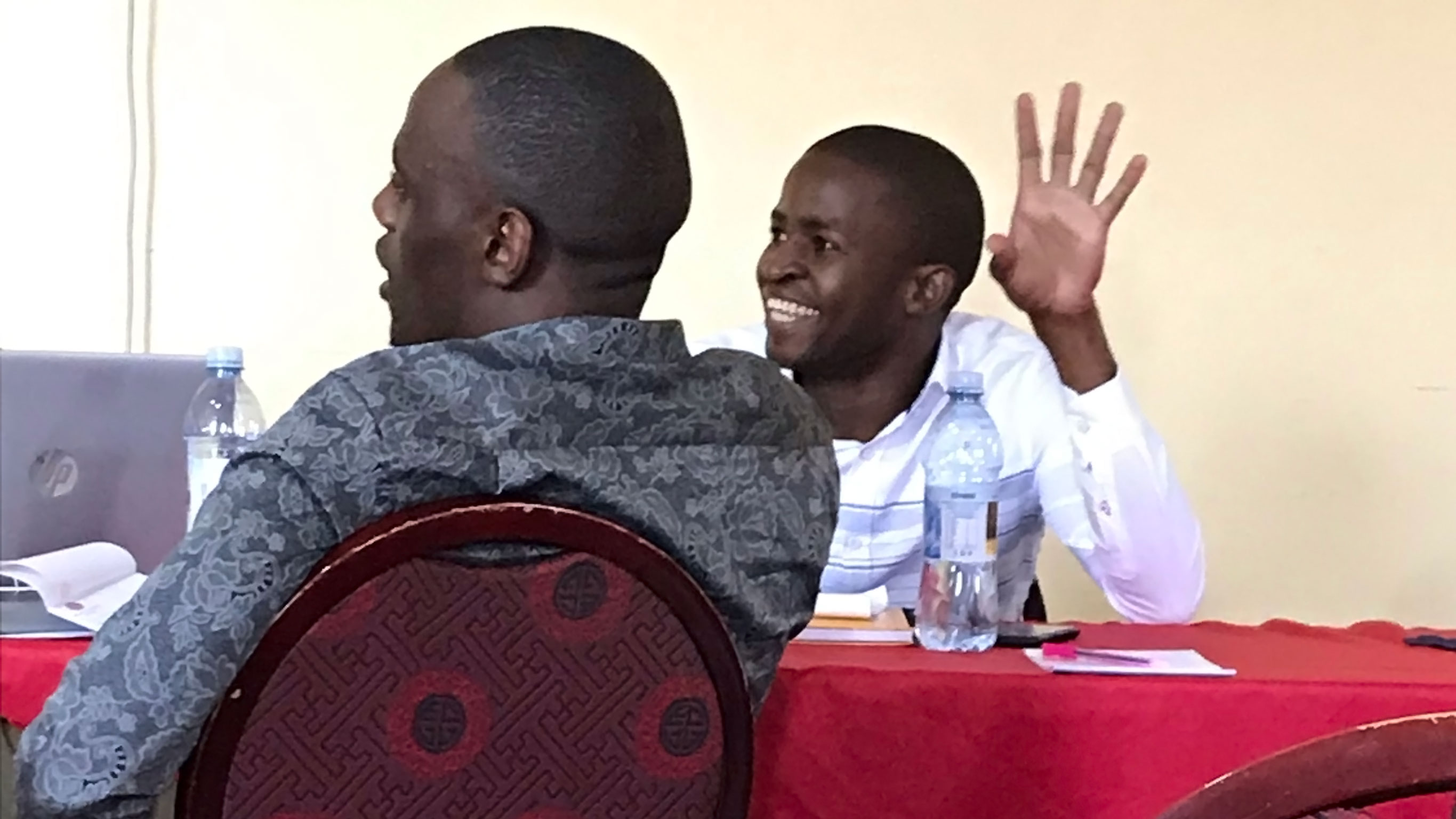
ProgRESSVet-Uganda participants Dreck Ayebare (left) and Muzafalu Menya attending the opening workshop in Kampala in January
At the Center for Animal Health and Food Safety (CAHFS) at the University of Minnesota College of Veterinary Medicine (CVM), we have refined an effective, culturally competent approach to partnering with foreign countries to empower their veterinary and animal health workforces in both the public and private sector.
In April 2019, CAHFS was awarded $1.5 million over three years from the Bill & Melinda Gates Foundation to design and implement education and training programs for animal health and veterinary professionals in Kenya and Uganda. The program will help participants to develop the knowledge, skills, and relationships necessary to excel and prioritize their contributions to national economic development in their daily work.
CAHFS serves as a World Organization for Animal Health (OIE) collaborating center for capacity building. Since 2016, CAHFS has been collaborating with the OIE around the globe on training initiatives designed to increase the capacity of the veterinary services, through the Programa Regional de Educación Sistemática de Servicios Veterinarios (ProgRESSVet-Latin America). ProgRESSVet-Latin America began in partnership with the Centro Buenos Aires para la Capacitación de los Servicios Veterinarios (CEBASEV) in Argentina and has been supported by other OIE collaborating centers, most notably, the Pan-American Center for Foot and Mouth Disease (PANAFTOSA).
The objective of ProgRESSVet-Latin America was to increase the capacity of the veterinary services in the region. Through this program, CAHFS worked with 20 veterinary professionals from six countries: Argentina, Bolivia, Brazil, Mexico, Paraguay, and Uruguay.
In this new initiative, ProgRESSVet-East Africa, we are extending our global network, and an additional 30 Kenyan and Ugandan professionals are already enrolled in the training.
The first cohort in ProgRESSVet-East Africa began in January 2020 with opening workshops in Nairobi, Kenya and Kampala, Uganda, focusing on veterinary professionals who work with beef, sheep, and goat meat, as well as dairy products. Participants will undertake four months of online training and will work in teams for the duration of the calendar year to develop funding proposals to support improved pathways for the trade of animals and animal products.
Program mentors will guide participants to develop proposals that will lead to improved animal health, food safety and security, and economic returns through access to international trade markets. This will help Kenya and Uganda better meet the international standards and practices for animal health. Proposals developed under the program will be presented to private and international funding bodies to pilot the implementation of solutions to the identified problems.
“Our project will advance the role of agriculture as a promoter of economic and social growth,” says Andres Perez, DVM, PhD, Endowed Chair of Global Animal Health and Food Safety and director of CAHFS. “The project will accomplish this by collaborating with colleagues in Kenya and Uganda to design interventions that will contribute to helping their countries reach the health standards required for the international trade of products, consequently helping these nations access international prices.”
In addition to receiving support from the veterinary services of both Kenya and Uganda, CAHFS is collaborating with Makerere University in Uganda and the women’s branch of the Kenyan Veterinary Association for project implementation in both countries. ProgRESSVet-East Africa is also an opportunity for CAHFS to learn from colleagues across the globe, and to bring that knowledge back to Minnesota. Collaborations will help U of M researchers and faculty to tackle diseases that are commonly found in East Africa, but exotic to the US, such as foot-and-mouth disease and African swine fever. Says Perez: “We do not feel we are teaching them; we are working together to help each other.”
Learn more about CAHFS eLearning initiatives

